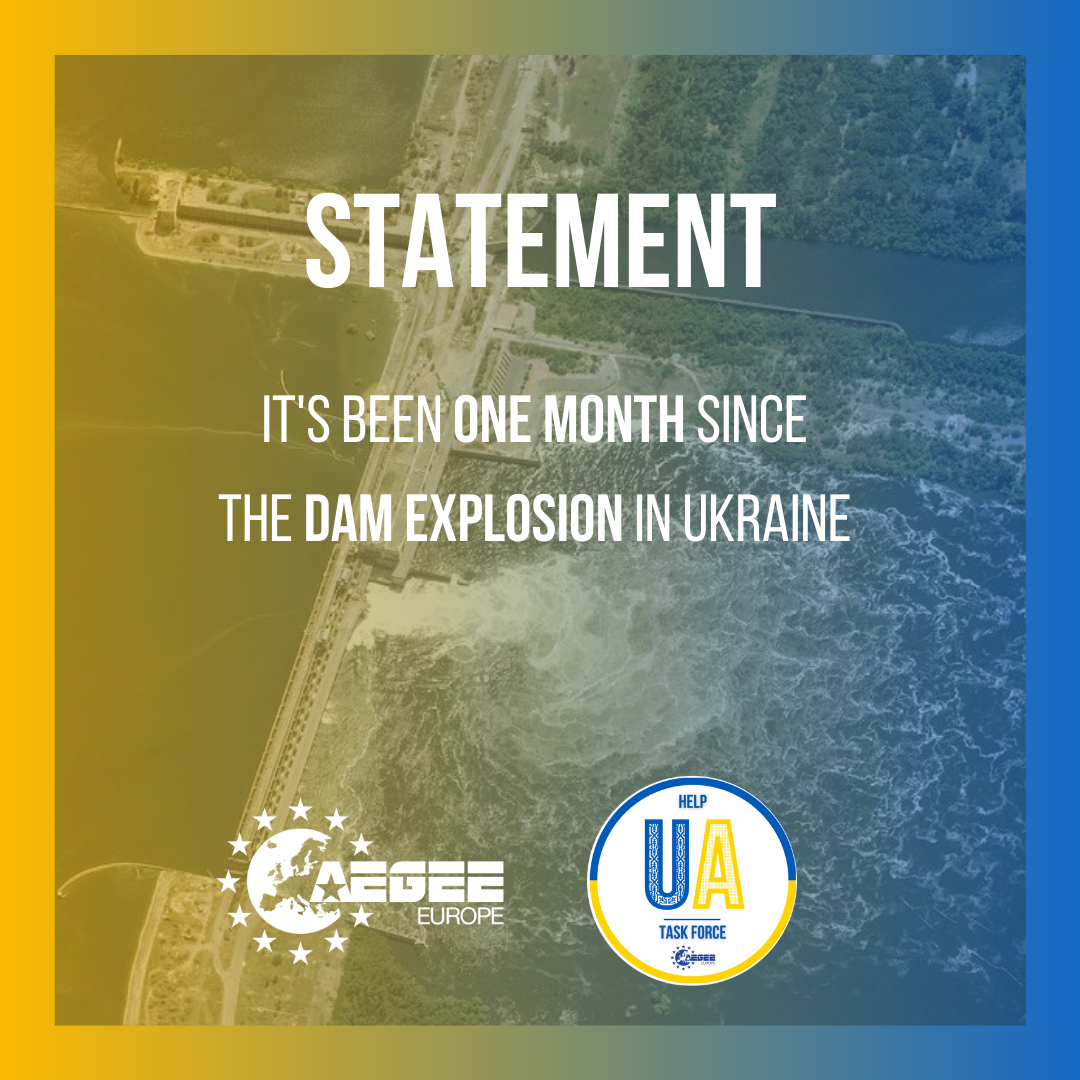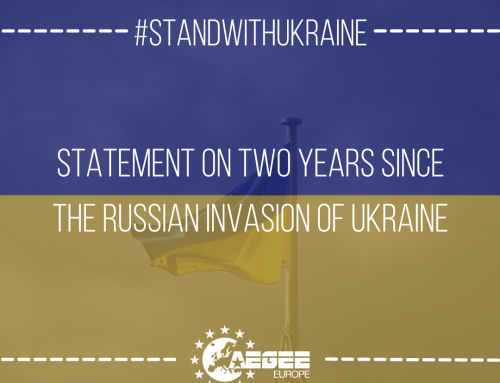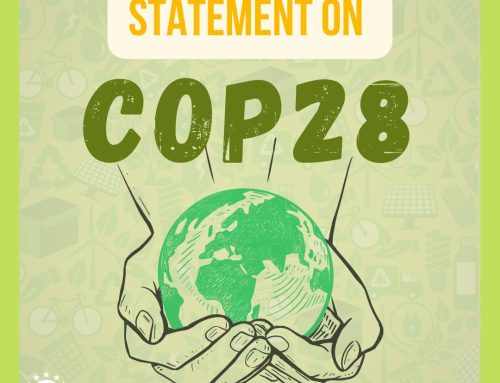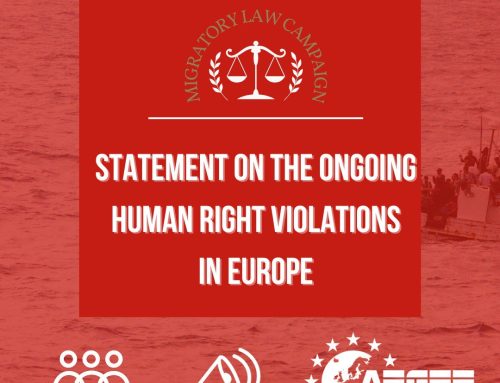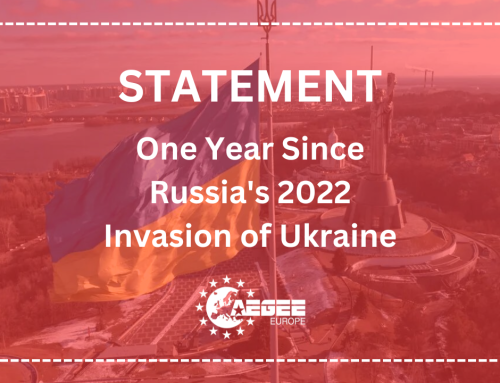On June 6th at 02:50, the Russian military destroyed the Nova Kakhovka dam on the Dnipro River in Kherson Oblast of Ukraine. The intentional explosion caused the structure to fail and release the water in the reservoir that was stored up to a record high of 18 m, which resulted in a catastrophic flood, releasing 18 trillion litres of water. This is a humanitarian and ecological catastrophe. Thousands of people had to be evacuated from the area already. The evacuations have been impeded by continued shelling by the Russian army. The Ukrainian authorities estimate that approximately 40.000 people are directly affected by the flooding. Multiple settlements have been completely flooded.
Following Article 56 of Protocol I of the Geneva Convention which prohibits the deliberate destruction of “installations containing dangerous forces,” the destruction of the Nova Kakhovka dam constitutes yet another war crime of the Russian military.
In addition to the initial impact on human life caused by the flood, the destruction of the dam leads to multiple severe ecological consequences:
Water Pollution: The floodwaters carry a range of pollutants, including sediments, chemicals, and waste materials from urban and industrial areas. This contamination poses a threat to the quality of water sources, making them unfit for human consumption and harming aquatic organisms. It can also lead to the eutrophication of water bodies, resulting in the depletion of oxygen levels and the death of fish and other aquatic life.
Crop Damage: Agricultural lands have been submerged, leading to the loss of crops and affecting food production. The floodwaters may introduce pollutants and sediments into the soil, rendering it unsuitable for future cultivation. The agricultural sector will face significant challenges in recovering from this damage, impacting food security and livelihoods.
Habitat Destruction: The floodwaters have engulfed vast areas of land, including national parks and agricultural fields. This has led to the destruction of habitats for numerous plant and animal species, disrupting their natural life cycles and potentially causing long-term damage to biodiversity.
Loss of Wildlife: The floodwaters have likely caused the displacement and loss of wildlife populations. Animals may drown or struggle to find higher ground, leading to significant mortality rates. Migratory routes and nesting sites for birds and other wildlife may be disrupted, impacting their breeding patterns and overall population dynamics.
In addition, the destruction of the dam endangers the security of the Zaporizhzhia nuclear power plant (NPP). The water from the Dnipro River is used to cool the residual heat of spent nuclear fuel rods that need continuous cooling for multiple years to prevent radiation leaks. At the moment, the cooling is still stable due to a filled safety reservoir. However, due to the falling water level of the river, caused by the destruction of the dam, this is not a permanent solution. The NPP is occupied and militarised by Russia.
We, as AEGEEans, believe in the human right of people to live in a peaceful, healthy and sustainable environment. We stand for the protection of people’s homes and private life, which is a prerequisite for enjoying the right to a dignified life. The catastrophic ecological consequences of Russia’s actions deprive Ukrainians of those rights. Reiterating our previous statements on the atrocities of the war, we defend the right of Ukraine to have its territories returned in order to protect the lives of civilians and restore its territorial integrity.
For all of explained above, AEGEE:
Condemns the destruction of the Nova Kakhovka dam and all other Ukrainian infrastructure by the Russian Federation.
Condemns the deliberate triggering of the humanitarian and ecological disaster by the Russian military.
Condemns the endangerment of the security of the Zaporizhzhia NPP by the Russian occupation.
We continue to support Ukraine in its efforts to bring about the complete de-occupation of all Ukrainian territories.
Sources:
https://www.spiegel.de/international/world/the-kakhovka-catastrophe-war-weary-ukrainians-reel-under-massive-flooding-a-b32e9e85-3430-4131-b400-9e8573033e09

